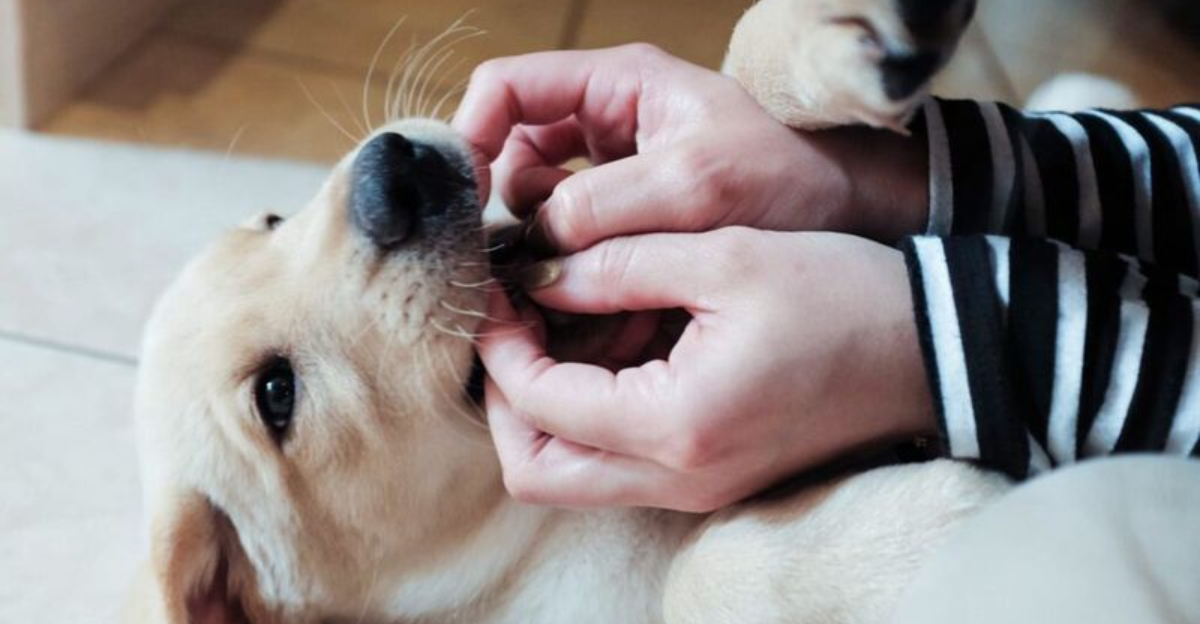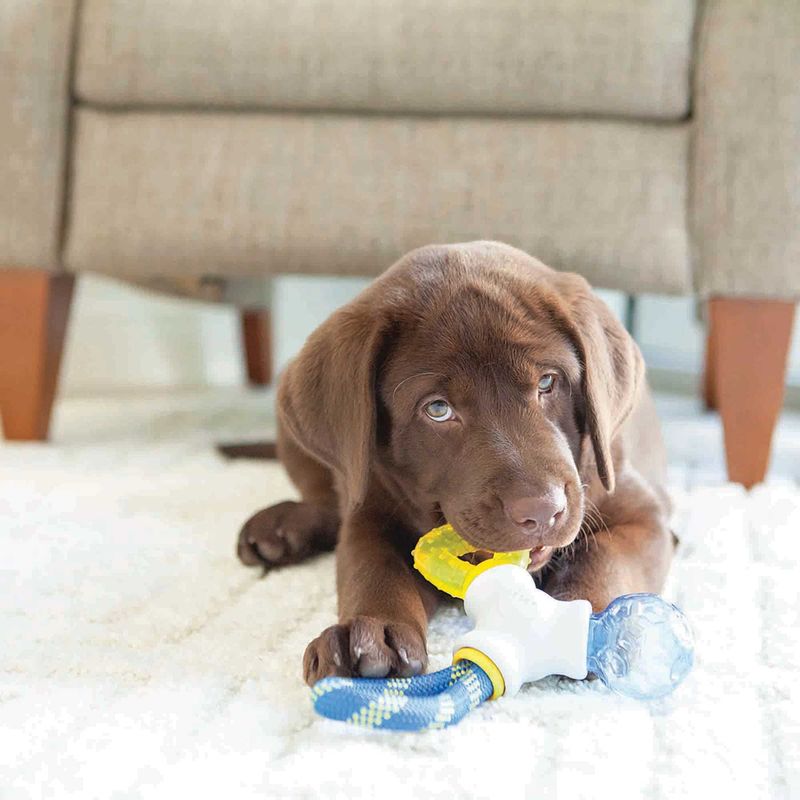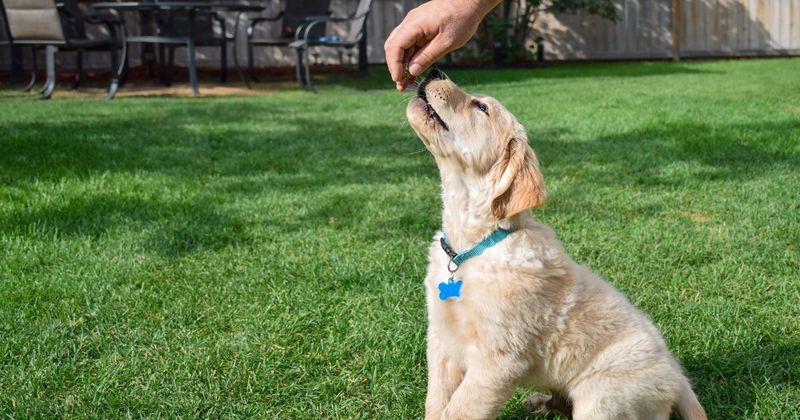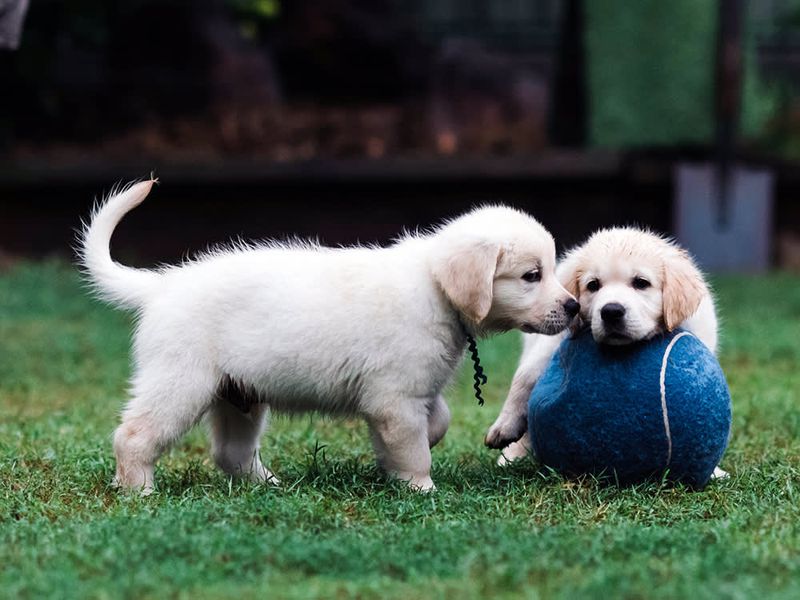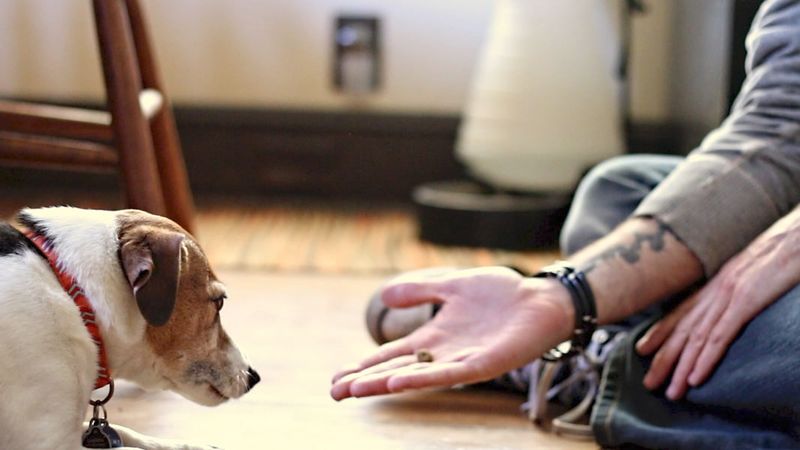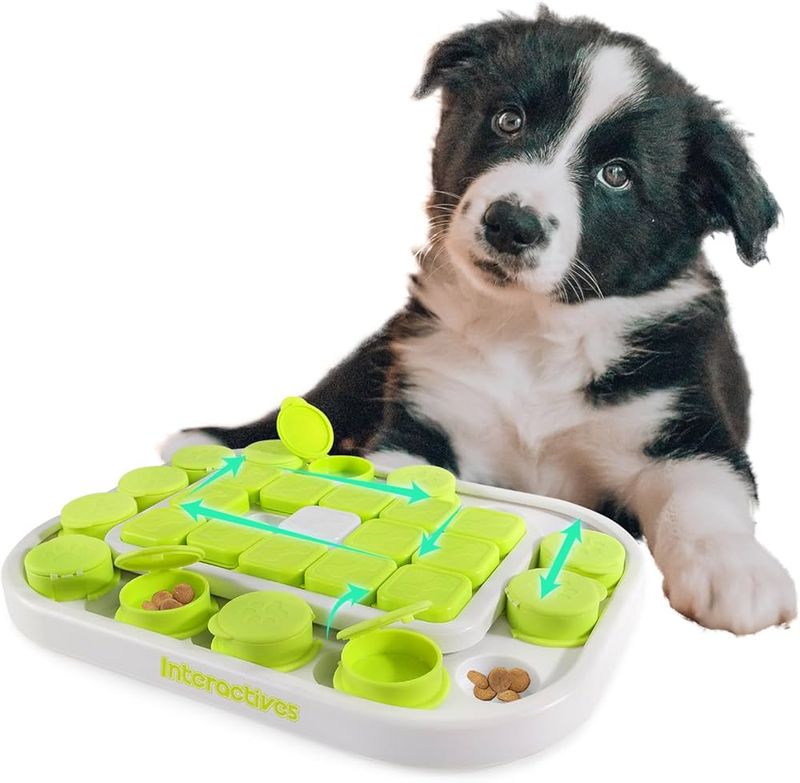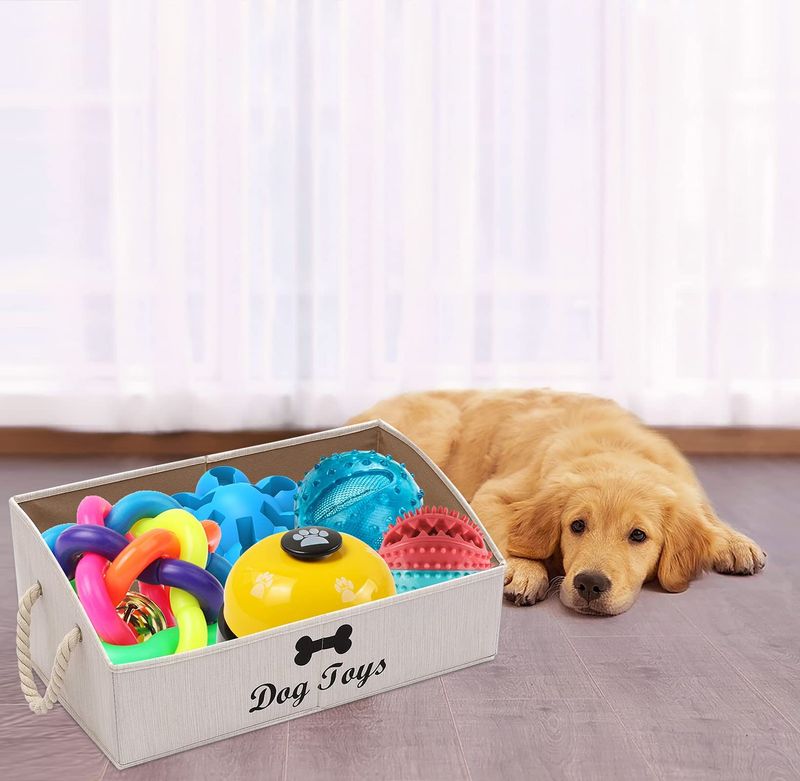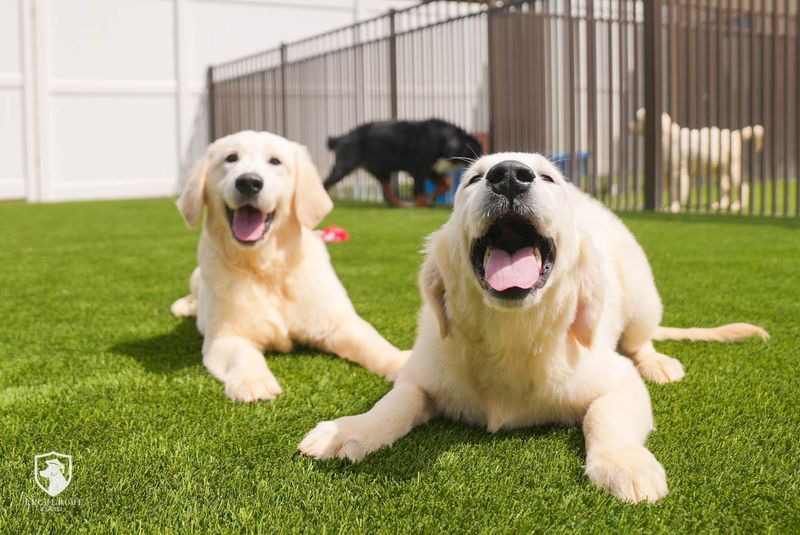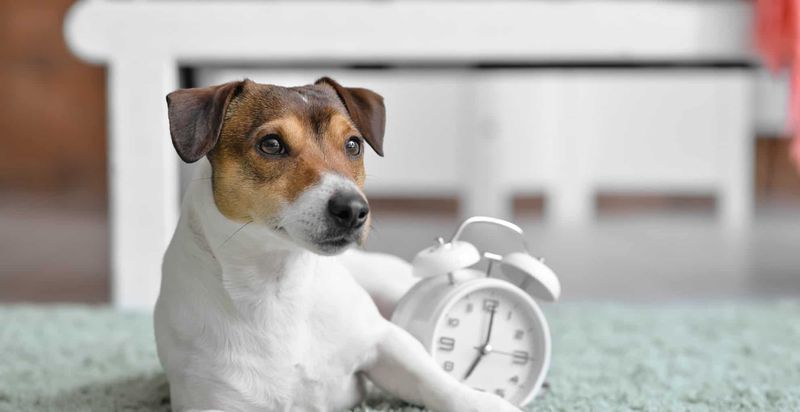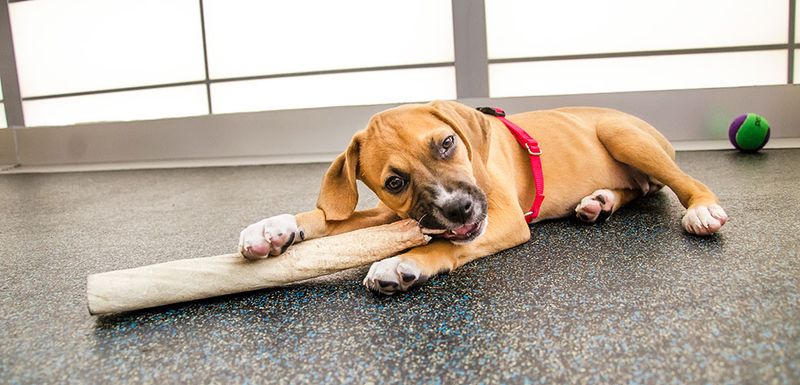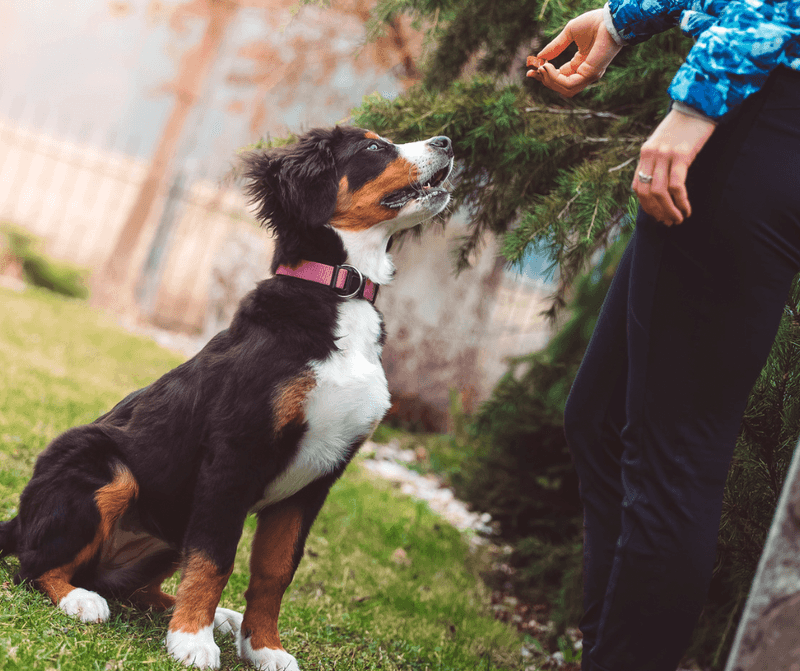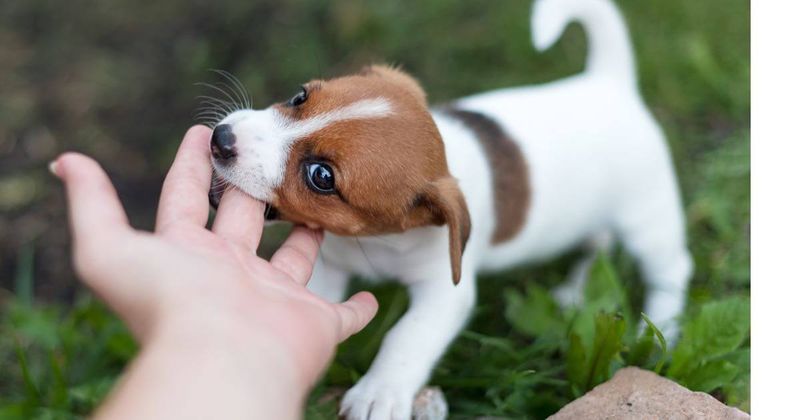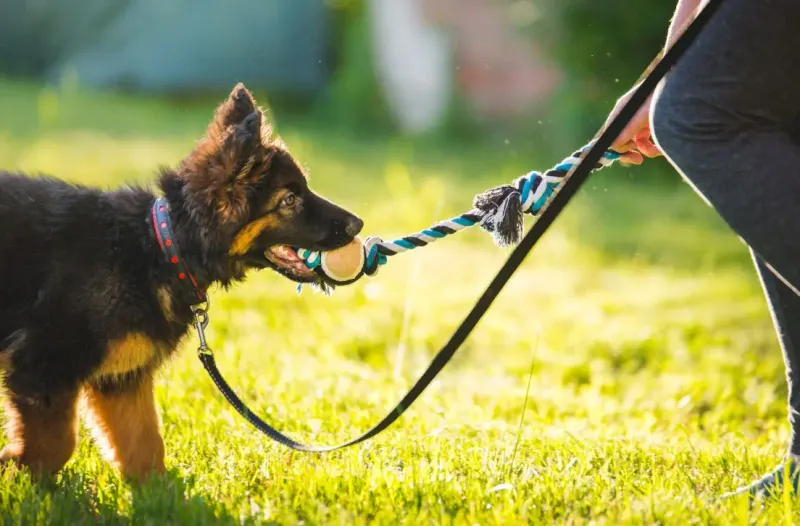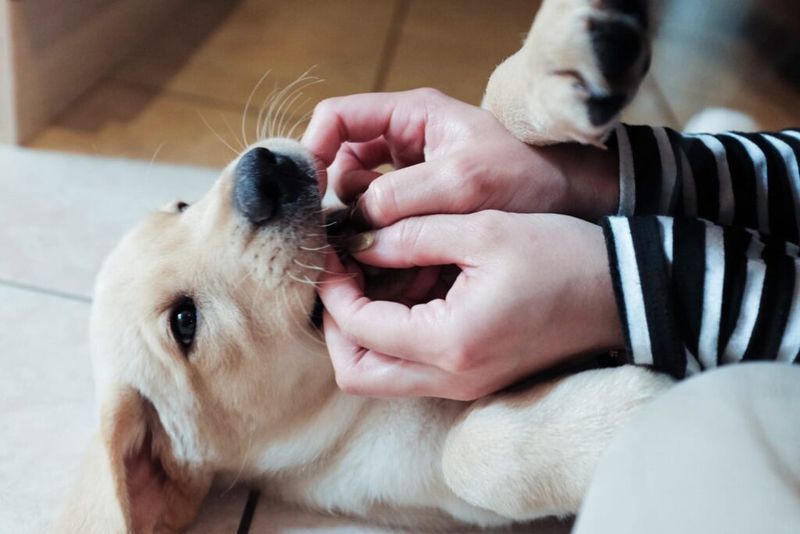Welcoming a new puppy into your home is an exciting adventure, filled with laughter, cuddles, and playful antics. However, one common challenge many new dog parents face is puppy biting. While it’s a natural behavior, teaching your puppy to curb this habit is essential for both of your sakes. Our curated list of 13 expert-backed tips will guide you through different techniques to manage and reduce puppy biting effectively, ensuring a harmonious relationship between you and your furry friend.
Understand Puppy Teething
Puppies, much like human babies, go through a teething phase. This stage, which usually begins around three weeks of age, can cause discomfort, making puppies chew to alleviate the pain. Providing your puppy with appropriate teething toys not only soothes their gums but also diverts their biting tendency away from your furniture and fingers. Opt for toys that are safe and durable, yet soft enough to be gentle on their growing teeth. Regularly rotate the toys to keep them interesting. Remember, a well-occupied puppy is less likely to engage in unwanted biting.
Implement Positive Reinforcement
Rewarding good behavior is a powerful training method. Whenever your puppy refrains from biting, especially during playtime, immediately reward them with treats, praise, or affection. This positive reinforcement encourages them to repeat desirable actions. Ensure the rewards are immediate and consistent to effectively reinforce the behavior. Over time, your puppy will associate not biting with positive outcomes. Balance is essential; too many treats can lead to weight gain. Instead, use verbal praise or a gentle pat as alternatives. Positive reinforcement is not just effective but also strengthens the bond you share with your puppy.
Socialize Your Puppy Early
Socializing your puppy with other dogs is key to curbing biting. Through interaction, puppies learn bite inhibition from their peers. When one puppy bites too hard during play, the other will yelp and stop playing, teaching a natural consequence. Enrolling your puppy in socialization classes or organizing playdates exposes them to different temperaments and behaviors. This exposure helps them understand boundaries and develop better control over their biting. Besides controlling biting, socialization builds confidence and reduces anxiety. A well-socialized puppy becomes a well-adjusted adult dog, ready to face the world with a wagging tail.
Teach the ‘Leave It’ Command
The ‘Leave It’ command is a crucial tool in managing biting. Start by placing a treat on the ground and covering it with your hand. Allow your puppy to investigate. The moment they stop trying to get the treat, reward them with a different treat from the other hand. Repeat until they consistently back off when you say ‘leave it.’ Gradually increase the difficulty by uncovering the treat. This command teaches self-control and can be generalized to other situations, such as restraining biting impulses. Consistent training makes this command an invaluable part of your puppy’s behavioral toolkit.
Provide Mental Stimulation
Just like humans, puppies need mental challenges to stay engaged and happy. Consider introducing interactive puzzle toys that stimulate their minds and keep them occupied. These toys often involve treats hidden within compartments, requiring the puppy to think and solve problems. Mental stimulation not only reduces boredom-related biting but also enhances your puppy’s cognitive development. Spend time daily engaging your puppy with these activities to build their problem-solving skills. An occupied mind is less prone to mischievous biting, and the bond between you and your puppy strengthens through these fun, challenging experiences.
Redirect to Chew Toys
Redirecting your puppy’s biting to chew toys can effectively manage this behavior. When your puppy starts biting something inappropriate, gently remove it and replace it with a chew toy. This teaches them what is acceptable to bite and what isn’t. Choose a range of toys with different textures and materials to keep your puppy interested. Rotate the toys regularly to avoid boredom. This simple yet effective method encourages appropriate chewing habits. Remember, consistency is key. With persistent effort, your puppy will naturally gravitate towards their toys, sparing your belongings and fingers from their playful nibbles.
Establish a Routine
Puppies thrive on routine, and establishing one can help manage their biting behavior. Consistent schedules for feeding, playtime, and rest create predictability, reducing anxiety and preventing boredom, which often leads to biting. Structured playtime with designated toys reinforces what they can bite, while regular nap times ensure they’re not overtired—a common cause of increased nipping. Adapt the routine as your puppy grows, but maintain its structure. Over time, your puppy will become accustomed to their daily activities, understanding when it’s time to play and when it’s time to rest, promoting a well-balanced demeanor.
Use Time-Outs Effectively
Time-outs can be an effective tool for curbing biting. When your puppy bites too hard, calmly place them in a quiet, designated spot away from stimulation. Ensure it’s a safe and comfortable area, not used for punishment. This break allows them to calm down and understand the consequence of their actions. Limit the time-out duration to a couple of minutes. When reintroducing your puppy to play, observe their behavior. If they continue biting, repeat the process. Through consistency, your puppy learns that biting results in temporary isolation, encouraging them to self-regulate their behavior over time.
Keep Playtime Gentle
Keeping playtime gentle can significantly reduce biting incidents. Use soft toys and engage in non-aggressive play to teach your puppy that biting isn’t part of fun interactions. Encourage games that don’t involve hands near their mouth, like fetch or hide-and-seek. If your puppy gets too excited and bites, immediately stop the play session to convey that rough behavior halts fun. Resume play only once they’ve calmed down. This pause-and-play method reinforces gentle play habits. Consistent and positive interactions during playtime nurture a well-behaved puppy that associates fun with calmness and affection.
Seek Professional Training
Sometimes, professional help is the best option, especially if biting persists despite your efforts. A qualified dog trainer can offer personalized strategies and insights into your puppy’s behavior. They have the experience to address specific issues and provide structured training plans tailored to your puppy’s needs. Training sessions are also beneficial for you as a pet owner, equipping you with skills and knowledge to handle future challenges. Investing in professional training is an invaluable step in ensuring your puppy grows into a well-mannered adult dog, making it a worthwhile consideration for every dog parent.
Recognize Overstimulation Signs
Recognizing signs of overstimulation can prevent biting incidents. Puppies, when overwhelmed, might resort to biting as a form of expression. Look for signs like yawning, backing away, or excessive panting during play or new experiences. These signals indicate it’s time to take a break. Provide a calm space for your puppy to relax and regain composure. Gradually reintroduce them to the situation once they’re settled. Understanding these cues helps you manage your puppy’s environment, ensuring they’re comfortable and stress-free. This proactive approach minimizes biting, fostering a peaceful and trusting relationship.
Be Patient and Consistent
Patience and consistency are the keystones of successful puppy training. Remember, your puppy is learning and adapting to the world around them. While it may be frustrating at times, maintaining a calm and persistent approach is crucial. Repetitive, consistent reinforcement of training commands and boundaries helps your puppy understand expectations. Celebrate small victories along the way. Consistency in your reactions and training efforts builds a reliable framework for your puppy. In time, with your patience and unwavering dedication, your puppy will learn to control their biting, growing into a loving companion.
Understand Normal Puppy Behavior
Understanding what constitutes normal puppy behavior is essential for managing biting. Puppies explore the world using their mouths, making biting a natural part of their development. By differentiating between playful nibbles and aggressive bites, you can apply the appropriate training methods effectively. Educate yourself on various stages of puppy growth and behavior milestones. This knowledge helps set realistic expectations and adapt training techniques to suit your puppy’s developmental needs. Embrace this curious phase, providing guidance and support as they learn. In doing so, you cultivate a harmonious relationship built on understanding and mutual respect.
